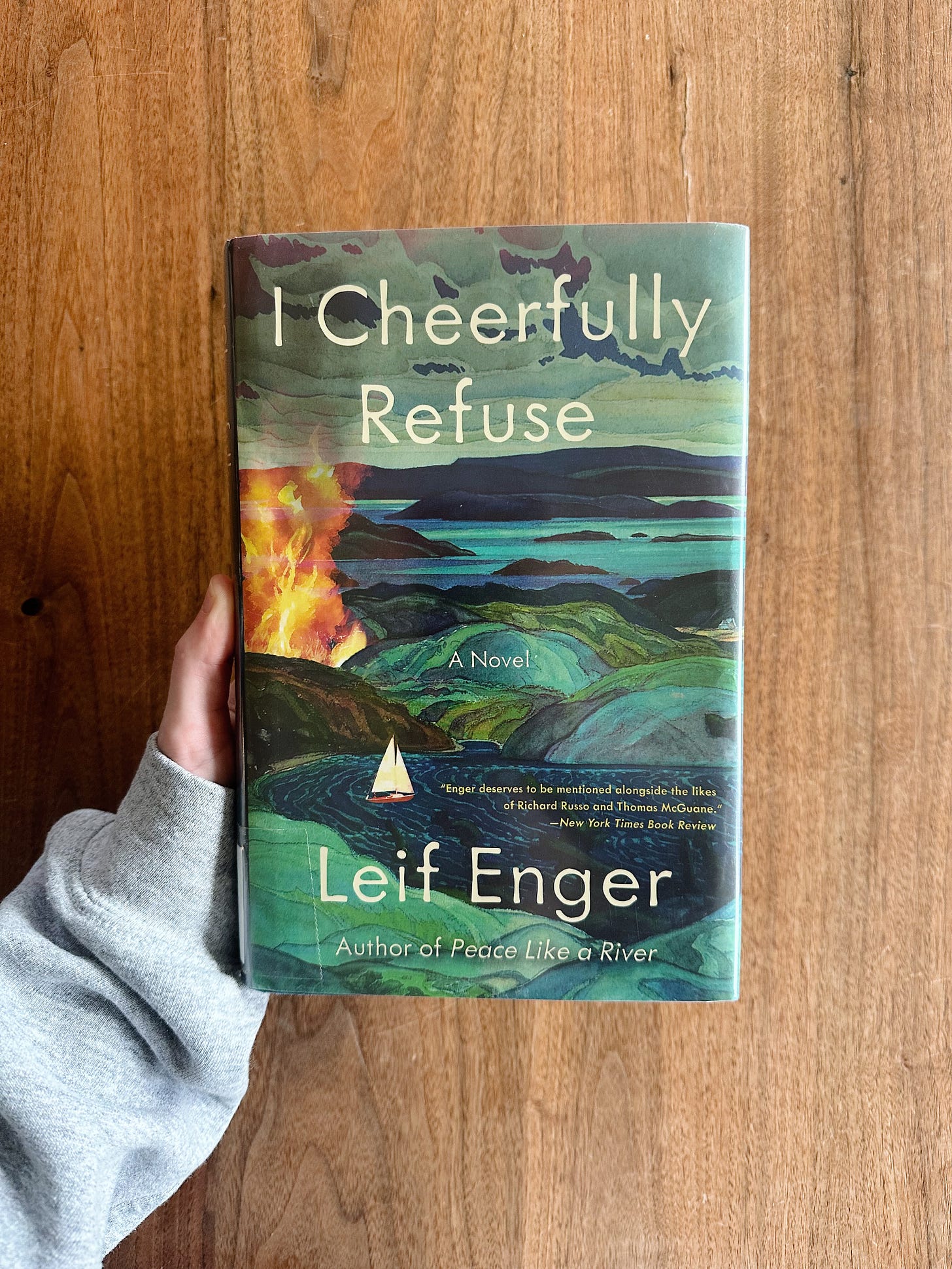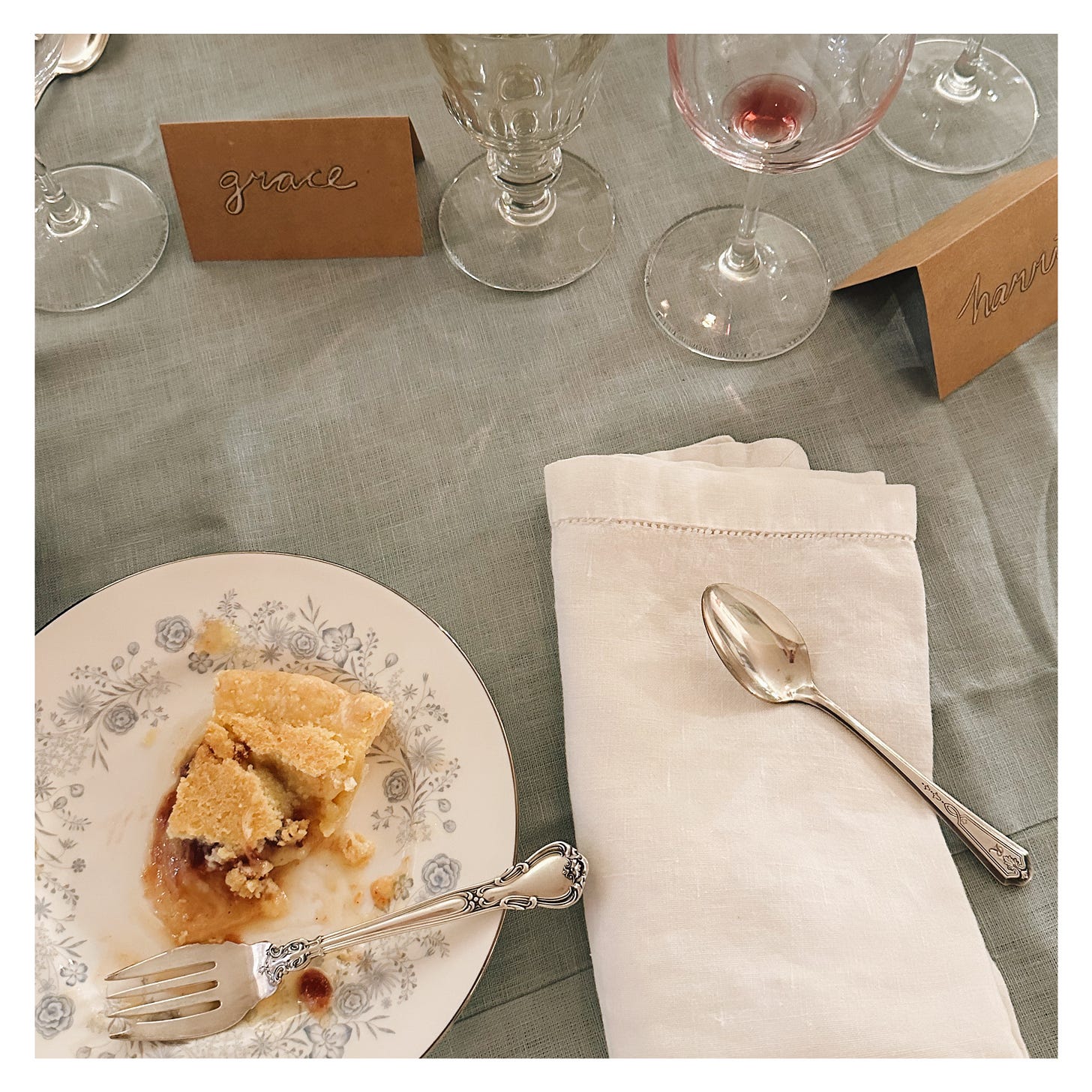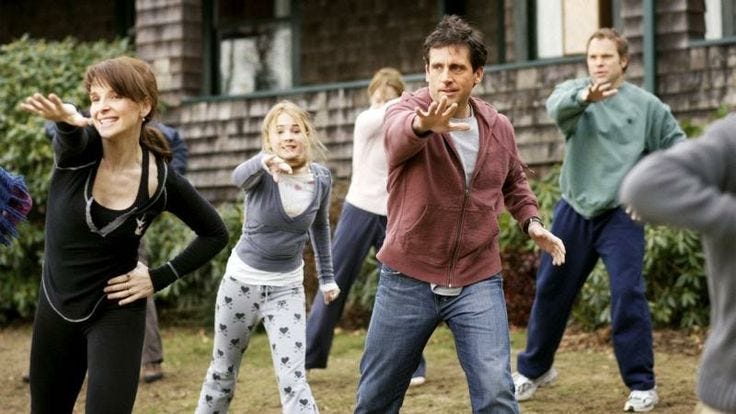It’s common knowledge that I adore a love letter. I enjoy pulling them out at unexpected moments and in light of recent events, I’ve been consumed by the contents of Susan Sontag’s 2001 letter to J. L. Borges. This is not a romantic love letter, though I find Sontag’s writing somewhat romantic in a practical, idealistic way. Sontag, a great American critic and writer, met Borges, an Argentine writer and poet, briefly at a writers’ dinner party in New York City sometime in the early 80s, and despite being contemporaries and practically strangers Sontag considered Borges not only a visionary but a dear friend. With that sentiment, Sontag wrote an open letter to Borges in 1996 following the tenth anniversary of his death.
In the letter, Sontag promises Borges that “some of us are not going to abandon the Great Library.” Written at the advent of widespread technological advancement and the subsequent influence of tech on the largely unchanged humanities, this letter defends the written word and its sanctity. You can read it in its entirety here, but this rather long excerpt is so pertinent I’m obliged to include it.
“You said that we owe literature almost everything we are and what we have been. If books disappear, history will disappear, and human beings will also disappear. I am sure you are right. Books are not only the arbitrary sum of our dreams, and our memory. They also give us the model of self-transcendence. Some people think of reading only as a kind of escape: an escape from the ‘real’ everyday world to an imaginary world, the world of books. Books are much more. They are a way of being fully human.
I’m sorry to have to tell you that books are now considered an endangered species. By books, I also mean the conditions of reading that make possible literature and its soul effects. Soon, we are told, we will call up on “bookscreens” any “text” on demand, and will be able to change its appearance, ask questions of it, “interact” with it. When books become “texts” that we “interact” with according to criteria of utility, the written word will have become simply another aspect of our advertising-driven televisual reality. This is the glorious future being created, and promised to us, as something more “democratic.” Of course, it means nothing less then the death of inwardness—and of the book.
This time around, there will be no need for a great conflagration. The barbarians don’t have to burn the books. The tiger is in the library.”
While Sontag mostly alludes to the fact that those creating books with technology in mind are slowly poisoning the noble pursuits of literature, there’s a reading of this that fits quite nicely with the great shows of book banning that have become so normalized. The barbarians no longer have to burn the books because we’ve allowed them to infiltrate every system imaginable and we’re threatening to destroy much of literary culture on our own. The extent of banned books, legal action on schools and libraries, and state-wide sieges are all negative “conditions of reading” likely to be exacerbated in the next four years.


Sontag remarks that books “are a way of being fully human” and I would argue that that statement applies to both the content of a book and the conditions (allowed, outlawed, warned against) under which that content can be read. The representation and expression of gender, sexuality, religion, and speculation on how the past has influenced the present are all integral for readers to experience the spectrum of humanity—but such subjects are targeted by bans. There’s much being done by way of combat on this front, but Sontag’s sentiment toward the evolution of books—whether their existence on a Kindle or their lack of existence in a library—is worth some deeper consideration. Preservation meets product evolution in this letter.
The conversation this love letter sparks, whether political, social, or simply artistic, is what makes it so special. It’s a great example of how a cultural critic approached the future and honored a great artist; it’s fun to analyze from a contemporary angle as long as it’s contextualized. Now more than ever it feels pertinent to examine culture and hold it up to the x-ray of the past, to diagnose potential solutions for the future and steer clear of dangerous repetition. As much as I consider this letter a call to arms, I consider it a distant early warning, too. Evolution is inherent, but I’m hoping for a future that includes books.
I included this ode to a love letter and its cultural relevance because in all honesty, we’ve had a rough go of November and I’ve accomplished very little beyond the kitchen table. I haven’t been home for Thanksgiving in four years, so this week of popping over to family friends’ houses, watching too many hours of football, and having a full house for turkey day has felt brilliantly fulfilling. The Knowles drove up and Holle and I spent hours in Labyrinth books and Theo’s salon, Hugh and I talked lightsabers, and the adults spent the usual amount of time rehashing the saga that was their magical college experience in the north Georgia mountains. I made Harris run a turkey trot with me but didn’t expect it to be pouring down rain—we were soaked and freezing but I suppose we’re prepared should we ever marry into trot families. I’m sticking with my mimosa and Macy’s parade next year, though.
This has made for a merry, comforting week. The festive segue of November into December is one of my favorite times of the year, though I say that about every month. It’s a gift to be so often content with the passage of time. I’m looking forward to soaking up this season at home, before the excitement and unknown of the new year. December can feel like a small tornado sometimes but I’m hoping for a slow rush this year, and maybe a little snow.
I recently finished a book that is an easy contender for my favorite book of this year, and perhaps one of my favorite books ever. Leif Enger’s I Cheerfully Refuse was a title that charmed me before I cracked the spine and a story that thoroughly ensorcelled me. Enger writes in this vaguely medieval way; despite this book taking place in a “not-so-distant America,” Enger writes with the cadence and vocabulary of a time traveler who spent more time in Arthurian England than in futuristic America. This book charmed me and devastated me, sucked me into its seafaring world, and goes on the (ever-growing) list of my “Michigan novels” that are convincing me to move to the Great Lakes region. It’s a book about love and loss, about adventure and escaping evils, and goes into such perfect, crystalized detail about life’s small delights and pitfalls that it’s at once heartbreaking and heartwarming. I cannot sing its praises enough and it was the perfect escapism read this month.
Notes From a Young Black Chef by Kwame Onwuachi was a surprise favorite for me this month. It’s a memoir and I am a sucker for content that follows young chefs as they grow up cooking in their mother’s kitchen and then cut their teeth at places like EMP and Per Se. This was just an easy and enjoyable book to read and I appreciate how prideful Onwuachi is while still acknowledging the failures or setbacks in his career. I watched the newest season of Chef’s Table on Netflix, which dropped on Thanksgiving, where Onwuachi has an incredible episode, which felt like a great accompaniment to this memoir.
The unexpected fourth novel to a pretty iconic sci-fi trilogy, Jeff VanderMeer’s Absolution completes a trilogy that really pushed the envelope for contemporary sci-fi. But this prequel fell pretty short for me. Having finished off the Southern Reach trilogy relatively recently meant that so many small pieces of this book fell into place—but amongst a lot of fluff. The backstory into Central and the formation of the Border content I was looking for was nowhere to be found, despite the book being about 150 pages too long. VanderMeer’s writing is absolutely an acquired taste because of its fickle mix of jargon and third-person stream-of-consciousness and it’s at its peak here in Absolution. I loved getting more backstory into the characters who influenced Area X, but this book was hard for me to get through and I genuinely considered not finishing the final section because I found it so frustrating to read. Do not let this keep you from reading Annihilation, though—it is perfect as a standalone and one of the twenty-first-century sci-fi greats.
As we enter the flurry of the holiday season, gift-giving is always on the brain. This may be a personal belief but I think books can be an incredibly thoughtful gift—if you’re willing to put in the work to find the perfect book for your loved ones. If you’re struggling to find books that aren’t just repeat NYT Book Review darlings, might I suggest turning to your local indie bookseller recommendations? Parnassus Books has a great blog where they post monthly staff recommendations and they often suggest books “for fans of _, try _” on their Instagram. If you have the luxury of going to a store in person, make a beeline for that staff recs shelf or just ask an employee—I promise you won’t be disappointed.
My family hosted Thanksgiving this year, which meant the house was in prep mode for about a week in advance. I was on partial pastry duty, handling ice cream and a pie, right in my wheelhouse. Cinnamon ice cream is a Thanksgiving staple for us and we make Susan Branch’s recipe, which is egg-based and therefore very rich. I also made a buttermilk pie, which is one of my all-time favorite desserts and even better as a leftover—I eat a slice for breakfast. It’s very southern and a family recipe, so I always use my grandma’s filling and I make the cornbread crust from Sean Brock’s cookbook. This year, I saw one of my favorite southern bakers make hers with a layer of Damson plum jam on the bottom, and given that my mom cans our plums, I decided to do the same. The tartness of the plum cut the sweetness of the buttermilk filling nicely, and the bubbly, crispy sugar crust layer that glows golden genuinely never gets old.
It’s been abnormally warm and dry this month, so as soon as we got a cold front and a true rainy day I felt it was time to make a festive hot beverage. I opted for an amaro-spiked mocha accompanied by caramelized brioche sticks. If you live in NJ and have ever been to The Bent Spoon in Princeton, you will know their hot chocolate is almost solid because of how rich it is; this mocha was similar. I actually really liked the addition of the amaro, which brightened up what was a very rich, very dark chocolate and espresso combination.
The brioche sticks were also a fun topping because I’d made a brioche loaf from Claire Saffitz’s Dessert Person cookbook. You essentially pan-fry cubic sticks of the brioche in butter, then melt brown/raw sugar and coat the toasted sticks in those. It makes for a crunchy, not-too-sweet partner to the mocha. Saffitz also has a recipe for coriander sugar brioche twists in that book that I made and my family thoroughly enjoyed for breakfast for about a week.
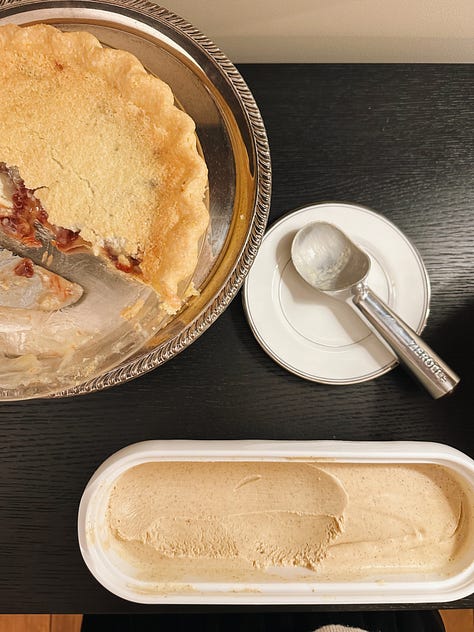
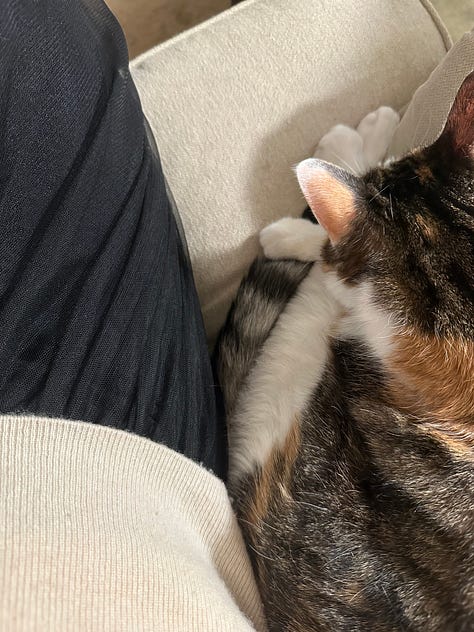
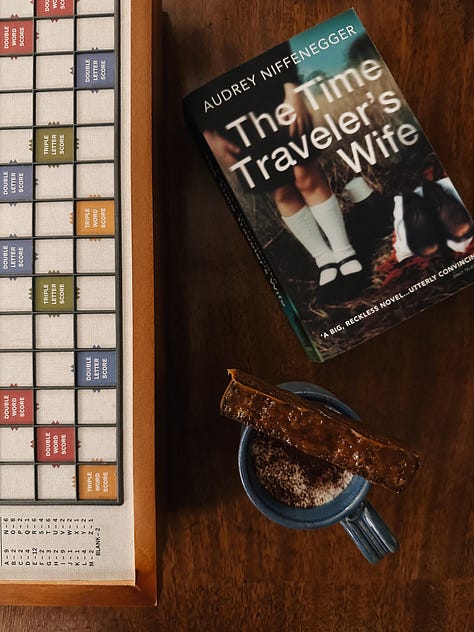
Cherry Bombe is one of my absolute favorite print magazines, but something I love about their brand in general is the amount of content they release on their podcast platform. From interviews with Ina (their holiday mag dedicated to her is gorgeous) to discussions with some of the most successful women in the restaurant industry, I love listening for recipes and industry anecdotes, and hearing truly powerful women spotlighted. I particularly loved a recent episode of theirs with Cathy Strange, who has been working with Whole Foods since before it was Whole Foods and is now their “Ambassador of Food Culture.” Despite a genuine love of specialty food stores and an infatuation with local grocers, I never gave much thought to the corporate side of grocery stores and how much social and cultural impact was involved. You learn about new careers every day…
Seven songs I loved this month.
All I Gotta Do by Stimulator Jones
I Believe in Miracles by Mark Capanni
Live for You by Thee Sacred Souls
About Nothing for the Love of Destiny by P.M. Dawn
When the Morning Comes by Hall & Oates
You’re All I Need to Get (Mixed) by Marvin Gay and Tammi Terrell
State of Mind by Jimpster
Stimulator Jones, a one-man operation, has been on a repeat cycle lately. Producing complex R&B that often synthesizes retro sound to create a psychedelic R&B, a lot of his music utilizes synth I hear a lot in 80s pop tracks backed with contemporary beats and vocals. His 2022 album, Round Spiritual Ring, is much more synth, bright beats, and electronica-influenced, while his 2018 Exotic Worlds and Masterful Treasures is much more skewed to soul, jazz-funk, and sounds like it was remastered from the 70s. On constant repeat: “All I Gotta Do,” “Pain Inside,” “Keep on Mashing,” “Soon Never Comes,” and “Tell Me Girl.”
My Rush playlist is the most listened-to media on my phone. So, while nothing could ever possibly replace Rush, I’ve been actively looking for a band with a similar sound for some variety. Enter Crown Lands, a Canadian band who are easily the closest we’re getting to Rush in this century. I love prog rock and Crown Lands sounds like Rush and Greta Van Fleet had a baby—a little bit of psych rock, prog rock, and some blues mixed with the same dystopian, fantastical lyrics Rush is known for. This duo is close to Rush not only because they emulate their sound, but have produced tracks with many of Rush’s past producers and mixers like Terry Brown, Nick Raskulinecz, and David Bottrill. The guitarist is also close pals with Rush’s Alex Liefson, who gave his stamp of approval for CL to carry the Rush torch, which is pretty incredible. So far, they are opening for big bands like Kiss or GVF on US tours but primarily play in Ontario, so I’m either going to have to make a long drive or convince them to come to New York because I need to see these guys live.
Embryolisse Lait Creme Concentre. Now that it is finally colder, the winter skincare is back in rotation. November means putting away the polypeptides and bringing out the heartier, heavy-duty workhorses. Objectively, this cream is on the lighter side and works year-round, but it’s heavier than my summer selections. I found out about this French cult-favorite moisturizer as I do all good things—on ITG when I was in maybe eighth grade. It’s been my winter go-to ever since and it’s popular which means you don’t even have to go to a Parisian pharmacy to find it.
Benetton merino wool sweaters. These basic, super-simple sweaters are a staple in my closet. They’re well-priced, easy to style up or just wear, and are ideal as we approach the colder months. They’re a little trickier to maintain as you have to hand wash them (they’re 100% wool), but they’re soft enough that I don’t always wear a tee underneath unless I’m looking to layer up. And I think when well-maintained, they get softer and better with age!
Dan in Real Life. One of my favorite movies to watch around Thanksgiving, I love Steve Carrell in more dramatic roles (even though this is a romcom). A huge family comes together in the fall to close up their parents’ gorgeous rustic seaside home for the winter, and Dan, a single dad to three daughters, accidentally falls for his brother’s new girlfriend. This movie is kind of quirky, very human, really sweet, and “You are a murderer of love!” is probably one of my favorite movie quotes.
The holiday season is upon us at last—for some, this equals the happiest they will be all year, for others it’s perhaps more stressful than festive. Whichever camp you fall in, I hope there’s time to enjoy more than just the overstimulation Big Holiday throws your way, whether that’s the prospect of snow or your family being together for a week. Hoping everyone finds some joy this month!
I sometimes post on Instagram @gracerobrts!
My Goodreads is here and I am always looking for reading recommendations.
My Apple Music is @gracecroberts, where my playlists are regularly updated and cared for.
If you should need to contact me for any other reason, or just want to say hi, my email is gracecroberts@gmail.com.
See you next month!
Sincerely yours,
Grace





